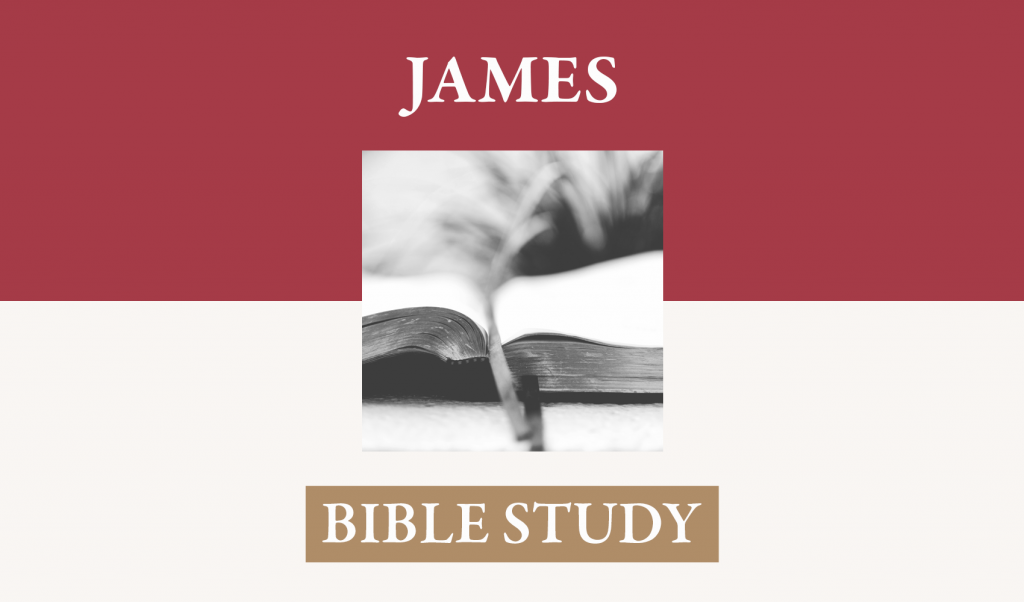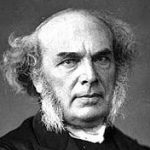Lesson Focus: You will be challenged to allow God to control what you say by spending time in His Word to attain His wisdom.
The Awesome Power of Words: James 3:1-6.
[1] Not many of you should become teachers, my brothers, for you know that we who teach will be judged with greater strictness. [2] For we all stumble in many ways, and if anyone does not stumble in what he says, he is a perfect man, able also to bridle his whole body. [3] If we put bits into the mouths of horses so that they obey us, we guide their whole bodies as well. [4] Look at the ships also: though they are so large and are driven by strong winds, they are guided by a very small rudder wherever the will of the pilot directs. [5] So also the tongue is a small member, yet it boasts of great things. How great a forest is set ablaze by such a small fire! [6] And the tongue is a fire, a world of unrighteousness. The tongue is set among our members, staining the whole body, setting on fire the entire course of life, and set on fire by hell. [ESV]
[1-5a] It comes as no surprise to us that James takes a serious view of the tongue. It arises from the particular way in which he stated the doctrine of salvation. Our heavenly Father made us His children by the powerful word He addressed to us, the word of truth [1:18]. His children should be marked out by their carefully, controlled speech [1:26]. But what James says in his way, the rest of the Bible says in its way, and there is hardly a sin more pervasively exposed and condemned than sins of speech. The tongue holds a key place in holy living. Verse 2 explains the warning concerning teachers in verse 1. The more searching judgment to which teachers expose themselves arises from belonging to a talking profession. While we all sin in many ways, it would take a truly perfect person to keep free of sins of speech. By perfect James means the completeness and maturity that will mark us when God has fully wrought in us all that He intends for us in Christ. But until that time sins of speech are prominent in our lives: the hasty word, the untruthful statement, the sly suggestion, harmful gossip, innuendo, impurity. Thus control of the tongue leads to a master-control of ourselves and our lives. His two illustrations in verses 3 and 4 show this. As to the horse, a comparatively tiny thing, a bit, controls and directs all its powerful and potentially unruly, even menacing, forces. As to the ship, the essential point is the same, that a comparatively small factor, a rudder, is the key to control and direction. James sees the tongue in light of these illustrations. The tongue is the key factor in controlled and consistent living. We ask ourselves how we are to control the powerful forces within us that drive us into sin, and James replies by talking about something we never considered – do we control our tongues?
[5b-6] Secondly, the tongue has enormous power for actual harm. Tiny as the spark is, once it is fanned into flame and the flame takes hold, then the fire will keep on spreading until all is ablaze. So the tongue is an actual power for evil. James covers four aspects of the fiery potency of the tongue, starting with its character. The tongue is a world of unrighteousness. The world is this present state of affairs or scheme of things organized on the basis of man’s sinfulness, hostile to God, rejecting Christ. The unrighteous world is characterized by all that falls short of being right with God. The tongue makes itself available as the focal point of all that unrighteousness. James next speaks of the tongue’s influence: staining the whole body. This is the other side of the positive mastery over the body which can be achieved by a controlled tongue. Everywhere the tongue makes its presence felt and leaves its stain. For the third aspect of his analysis of the evil force of the tongue, James uses the unusual expression, setting on fire the entire course of life. This points out the continuance of the evil of the tongue; it continues for the entire course of our life. In the fourth place, James notes the tongue’s affiliation: and set on fire by hell. Hell is the place of fire and James sees the fires of Gehenna reaching up to that part of our sinful, fallen nature where they will most easily find their torch-paper.
The Dual Nature of Words: James 3:7-12.
[7] For every kind of beast and bird, of reptile and sea creature, can be tamed and has been tamed by mankind, [8] but no human being can tame the tongue. It is a restless evil, full of deadly poison. [9] With it we bless our Lord and Father, and with it we curse people who are made in the likeness of God. [10] From the same mouth come blessing and cursing. My brothers, these things ought not to be so. [11] Does a spring pour forth from the same opening both fresh and salt water? [12] Can a fig tree, my brothers, bear olives, or a grapevine produce figs? Neither can a salt pond yield fresh water. [ESV]
[7-10] James began in verse 2 by showing what good followed from a controlled tongue; he followed this up with the alarming harm brought about by an uncontrolled tongue. He now turns to develop a third major point: the tongue is humanly uncontrollable. The word restless signifies always liable to break out, as if the tongue was an untamed, half-tamed or poorly tamed beast accepting for a time the imposed restrictions and then suddenly turning savage. We learn from these verses the constant need for watchfulness in case this restive beast should suddenly rouse itself to our shame and hurt. James does not simply say that the tongue is untamable, but that it cannot be subdued by any power resident in mere human nature or possessed by a mere human being. The fourth element in James’ searching analysis of the tongue is that it involves us so easily in the deadly sin of inconsistency, one of James’ special themes as we see in 1:6-8 and 2:4. It is this sin which is the deadly poison of which he speaks. The repeated words with it … with it underline the use of the same faculty for two opposite, irreconcilable purposes, to bless and to curse. Our inconsistency is further compounded by the fact that we bless and curse the same thing, the image of God. We look upwards to our Lord and Father and our awareness of His greatness, His glory – everything that is true and lovely about Him. The thought, too, that Jesus is the image of the invisible God [Col. 1:15] prompts us to bless Him. The idea of blessing God should not be confused with praising God. It is a distinct idea. When God blesses us He reviews our needs and responds to them; when we bless God we review His glories and respond to them. Praise can arise from a multitude of causes; blessing arises from an awareness of God’s glory.
[11-12] There is a fifth reason why we need to guard our tongues. It is this, that its pollution, not its sweetness, prevails. The question James asks in verse 11 expects a no answer, and for the very obvious reason. Suppose two separate sources of water flowed together into the same outlet, one sweet water, the other brackish and unpalatable, we would never know of the double source because the bitter flavor would prevail. That is what would prove to be the stronger element; that is what would leave its mark. So the tongue needs guarding lest it leave a bitter taste behind it wherever it makes itself felt. The illustration in verse 12 is different from that in verse 11. This verse takes us back to the source. Verse 11 focused on the outlet. But verse 12 takes us back to the source of the water (salt pond) or the food (fig tree or grapevine). The source will bear the type of water or food that is consistent with its nature. God has so organized life that each source bears results according to its nature. The nature of the plant determines the fruit; the fruit borne bears witness to the nature of the plant. Jesus said: out of the abundance of the heart the mouth speaks [Matt. 12:34]. This is James’ sixth reason for keeping a watchful eye on our speech. A fig must have a fig tree as its source, a grape can come only from a vine, an olive from an olive tree; salt water has a salt source; sweet water a sweet source; bitter words a bitter heart; critical words a critical spirit; defamatory, unloving speech issues from a heart where the love of Jesus is a stranger.
The Wise Use of Words: James 3:13-18.
[13] Who is wise and understanding among you? By his good conduct let him show his works in the meekness of wisdom. [14] But if you have bitter jealousy and selfish ambition in your hearts, do not boast and be false to the truth. [15] This is not the wisdom that comes down from above, but is earthly, unspiritual, demonic. [16] For where jealousy and selfish ambition exist, there will be disorder and every vile practice. [17] But the wisdom from above is first pure, then peaceable, gentle, open to reason, full of mercy and good fruits, impartial and sincere. [18] And a harvest of righteousness is sown in peace by those who make peace. [ESV]
[13] James begins his critique of envy and the disputes it causes with the question: Who is wise and understanding among you? James asks people who think that they have special understanding and insight in spiritual matters, in effect, to step forward so that he can analyze the legitimacy of their claim. Those people who respond to James’ invitation quickly find themselves the object of searching and perhaps unwanted scrutiny. For James assesses these people’s claim to wisdom not in theological terms but in practical terms: By his good conduct let him show his works. The test of true wisdom that James applies here picks up key ideas he touches on earlier in the letter: the importance of humility [1:21] and good works [2:14-26]. Good conduct, James insists, is the basis on which one can demonstrate wisdom. It is our acts of obedience to God, performed consistently day after day, that make up the good conduct of the wise person. And these works of obedience are to be done in the meekness of wisdom. James is saying two things here: true wisdom produces good works and also produces humility or meekness. The results of false wisdom that James highlights in verse 14, jealousy and selfish ambition, are in clear contrast to this humility, suggesting that it is especially this quality that James is concerned to emphasize here. True Christian meekness, or humility, comes from understanding our position as sinful creatures in relationship to the glorious and majestic God. It recognizes how unable we are in and of ourselves to achieve spiritual fulfillment or to chart our own course in the world. And this humility before God should then translate into humility toward others.
[14-16] Verse 14 is set in antithesis to James’ challenge in verse 13b. If a person harbors bitter jealousy and selfish ambition in the heart, that person is, in effect, living a lie: claiming to be wise but conducting himself in a way that denies that claim. The reason that James can draw this conclusion is that bitter jealousy and selfish ambition are contrary to meekness. If, then, meekness marks the wise person, these negative qualities exclude a person from being considered wise. James warns people characterized by these negative traits not to boast and be false to the truth. To boast about wisdom when one is displaying jealousy and selfish ambition is, in effect, to give the lie to the truth about what wisdom is and does. For wisdom must always be accompanied by humility [see Jer. 9:23-24]. To be sure people such as those James has described in verse 14 do possess wisdom – but it is not biblical wisdom. True wisdom comes not only through intellectual effort or study; it is the gift of God (comes down from above). But the wisdom that people who are jealous and selfish have has just the opposite nature and origin: it is earthly, unspiritual, demonic. James has arranged his three descriptions of false wisdom in ascending order of strength. In sum, then, this false wisdom, which does not lead to good works and humility, is characterized by the world, the flesh, and the devil. In each of these ways, it is the direct antithesis of the wisdom that comes from above – heavenly in nature, spiritual in essence, and divine in origin. The for that connects verse 16 to verse 15 indicates that what James now says justifies the harsh verdict about false wisdom that he has issued in verse 15. The earthbound, unspiritual, and even demonic character of this wisdom is evident from the effects it has in the life of the church. In order to make this point, James reiterates the two character traits displayed in the lives of those who are wrongly claiming to be wise: jealousy and selfish ambition. When people hold such attitudes, the result can only be disorder and every vile practice. The Greek word translated disorder is another form of a word that James has used in 1:8 and 3:8 to describe the double-minded person and the double-speaking tongue. Disorder is bound to break out in churches where people are pursuing their own selfish concerns rather than the good of the body as a whole. While what James says here applies to any Christian who prides himself or herself on being wise and understanding, he may especially have in mind the leaders of the community. For envy and selfish ambition among the leaders have tremendous potential to damage the unity and order of the church as a whole. When those who are being looked to for direction and wise counsel act on the basis of a personal agenda or in a spirit of “one-upmanship” toward one another, great damage to the church ensues.
[17-18] James quite clearly continues to operate with the biblical understanding of wisdom as a basic, God-given orientation that has profound practical effects on the way a person lives. Like true faith [2:14-26], true wisdom is identified by the quality of life that it produces. The first, and preeminent, attribute that wisdom produces is purity. The word pure connotes innocence and moral blamelessness. The seven qualities that follow in the list are specific dimensions of this overall purity. James has arranged them into three groups. The believer who is characterized by the first three traits – peaceable, gentle, open to reason – is the exact opposite of the envious, selfish, and ambitious person who is driven by demonic wisdom [15-16]. Peaceable is especially important, coming at the head of the list of specific virtues and being picked up for further emphasis in verse 18. Moreover, it is just this concern for peace that a community marked by serious dissensions [4:1-2] is badly in need of. The next two traits are probably subordinate to the first: it is the person who is gentle and open to reason who will be peaceable. Gentle or considerate indicates a willingness to yield to others and a corresponding unwillingness to push one’s own claims. With such an attitude, the believer, motivated and empowered by wisdom, will follow in the footsteps of his Lord, who also was characterized by meekness and gentleness [2 Cor. 10:1]. The word translated open to reason means, literally, “easily persuaded.” What is meant is not a weak, credulous gullibility, but a willing deference to others when unalterable theological or moral principles are not involved. In the second group of virtues, James now notes that wisdom from heaven is also full of mercy and good fruits. James provides his own definition of mercy: love for the neighbor that shows itself in action [2:8-13]. Acts of mercy are those fruits that genuine wisdom, like genuine faith, must produce. Rounding out James’ fruit of wisdom are two qualities that may also have much in common with each other. The first word can mean “impartial” or it can also mean “undivided” in loyalty. The idea of being undivided in loyalty fits well with the next word, sincere. This word has the literal sense “not playing a part.” The person characterized by wisdom from heaven will be stable, trustworthy, transparent – the kind of person consistently displaying the virtues of wisdom and on whom one can rely for advice and counsel. As the capstone to his portrait of two contrasting wisdoms, James returns to emphasize what seems to be his key concern in all this: the peace that genuine (as opposed to fraudulent) wisdom can bring to the community. There is therefore a clear connection with James’ rebuke of dissensions in what follows [4:1-2]. But connections with the previous context are also clear, via the concern with peace. The harvest of righteousness means literally “fruit of righteousness” and signifies the fruit that is righteousness.” Righteousness in James 1:20 meant that conduct which is pleasing to God, and this is the fruit intended here also. It includes all the virtues listed in verse 17 and is the opposite of every vile practice [16]. This righteousness cannot be produced in the context of human anger [1:20]; but it can grow and flourish in the atmosphere of peace. Those who create such an atmosphere are assured by their Lord of their reward: Blessed are the peacemakers; for they shall be called sons of God [Matt. 5:9].
Questions for Discussion:
1. Why does James say the tongue is the key to a disciplined life?
2. Why does James say that the tongue is humanly uncontrollable [3:8]? (Focus here on the source of the words that the tongue speaks: the heart. The condition of our hearts determine our thoughts which, in turn, are expressed by our words. So, in order to control our tongues, we must allow God to control our hearts and thoughts. This is the point of the illustration in verse 12. The source of the food and water determine the type and quality of the food and water.)
3. How does James contrast heavenly wisdom with worldly wisdom? List the characteristics of each type of wisdom. Why is meekness or humility an essential characteristic of heavenly wisdom?
4. How can you cultivate heavenly wisdom and its fruits this week? What traits and habits must you remove from your life? What things do you need to add to your life in order to grow in wisdom?
References:
The Letter of James, Douglas Moo, Eerdmans.
The Message of James, J.A. Motyer, Inter-Varsity Press.

















